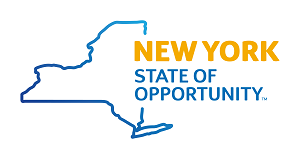
Fast, affordable Internet access for all.

Massachusetts and New York officials hope to entice affordable housing property owners with new grant programs that would pay the retrofitting costs to expand high-speed Internet connectivity into decades-old affordable housing developments.
The programs aim to focus on the multitude of multi-dwelling units (MDUs) in those states, particularly housing developments built before the advent of the Internet.
With property owners and Internet service providers (ISPs) often reluctant to pay the costs of getting these buildings up to broadband speed, Massachusetts and New York have launched initiatives – using a portion of their federal broadband funds – to chip away at the digital divide in housing developments where a significant number of tenants live in buildings not wired to support reliable broadband or where the service is not affordable, thanks to agreements with monopoly providers.

New York Bytes Into Broadband Affordability
In December, New York Governor Kathy Hochul’s office announced the state’s ConnectALL Office (CAO) was setting aside $100 million New York State received from the federal Capital Projects Fund (courtesy of the American Rescue Plan Act) to bring broadband connectivity to 100,000 affordable housing units across the Empire State.
In announcing New York's Affordable Housing Connectivity Program, Hochul said:
“With work, school, and essential government services going digital, affordable homes need affordable, reliable broadband, and this funding will help bolster our efforts to build housing equipped with the basic tools that New Yorkers need to succeed.”
In the wake of the new rules issued by the Federal Communications Commission (FCC) to prevent digital discrimination, digital equity advocates from California to Cleveland are leveraging the new federal rules to spur local action.
In Los Angeles, city leaders have passed an ordinance to combat what advocates say are discriminatory investment and business practices that leave historically marginalized communities without access to affordable high-quality Internet. Similar efforts to mobilize communities and local officials are underway in Oakland and Cleveland.
In November 2023, the FCC codified rules to prevent digital discrimination, outlining a complaint process whereby members of the public can offer evidence of digital discrimination being committed by Internet service providers (ISPs). Though the FCC order does not outline local policy solutions, nor does it empower localities to carry out enforcement of the federal rules, it has the potential to open up conversations between local advocates and elected officials about new ordinances, stronger enforcement of existing ones, or public investment to facilitate competition and the building of better broadband networks.
Los Angeles First City in Nation To Officially Define Digital Discrimination At Local Level
The local organizing work behind the proposed ordinance in LA dates back to 2022 when digital equity advocates began to document inequitable broadband access across the county.
California digital equity advocates say that recent cuts to the state’s ambitious broadband deployment plan unfairly harm low-income and minority communities. And despite promises from state leaders that the cuts will be reversed, local equity advocates say the process used to determine which neighborhoods should be prioritized remains rotten to the core.
In 2021, California state leaders announced a $7 billion, multi-armed plan to bring affordable, next-generation fiber to every state resident. A key part of the plan involved building a $4 billion statewide middle-mile open access fiber network designed to drive down the costs of market entry, improve competition, and reduce broadband prices.
At the time, California officials said “the statewide network will incentivize providers to expand service to unserved and underserved areas.” Groups like the EFF lauded the “historic” investment, likening it to bold, early efforts to ensure rural electrification.
But last May, California officials quietly announced they’d be making some notable cuts to the state’s affordable broadband expansion plan. Blaming inflation and rising construction costs, the state’s renewed budget called for a 17 percent reduction in planned broadband investment, on average, across the state.